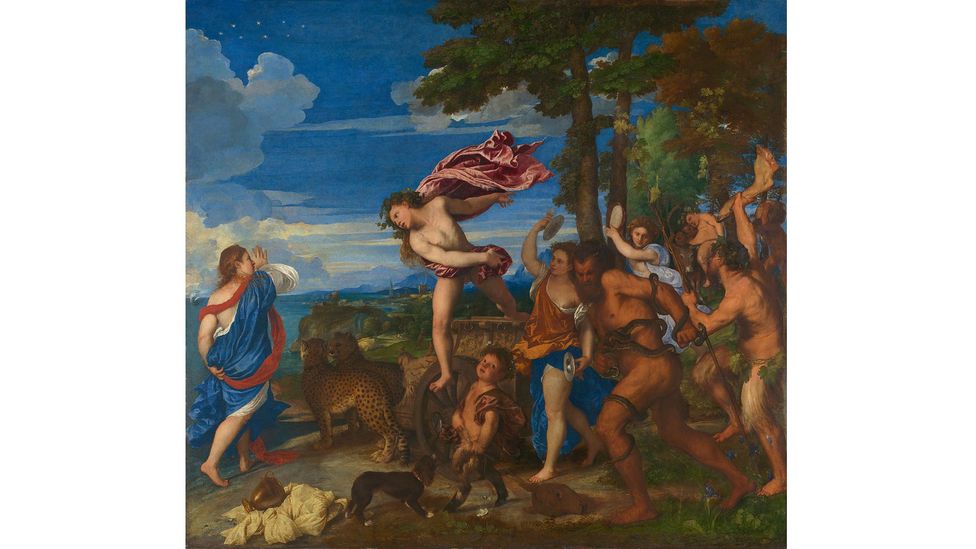Smack dab in the centre of his canvas, Titian has carefully, if curiously, positioned a caper flower, whose ivory petals and radiant bristle of exploding stamens are rendered with meticulous botanical detail. Follow the trajectory of the caper’s strangely overextended pistil and it catches in its stigma’s crosshairs the floating crotch of Bacchus, who, blasted from his seat, is frozen forever in mid-air, in what is surely among the most ungainly poses in all of art history.
A mischievous levitation
That the Latin name for the caper flower, Capparis spinosa, is related to the Italian word capriolare (meaning ‘to jump in the air’), is a droll enough visual/verbal play to suggest that Titian is intentionally teasing us with the placement of the prickly perennial plant directly under the bouncing Bacchus. But it is the plant’s medicinal use, since antiquity, as a natural carminative (or remedy for excessive flatulence) that reveals the artist is truly letting rip with some mischievous fun. In the context of Titian’s carefully deployed caper, Bacchus’s explosive propulsion from his seat appears more wittily, if crudely, choreographed by Titian, who demystifies the lovestruck levitation by providing us with a more down-to-earth explanation for the cheeky lift-off. In Titian’s retelling of Ovid’s myth, Bacchus has been hoisted by his own pungent petard, as Shakespeare, who likewise loved toilet humour, might have said.
Famously fond of flatulence himself, Shakespeare couldn’t resist squeezing potty puns into his plays. Hanging in the air behind the phrase ‘thereby hangs a tail’, from Othello, for example, is the lingering whiff of broken wind. Rather than crude blemishes that besmirch his plays’ achievement, however, such coarse scents attest to Shakespeare’s full range of observation, his depth of sensitivity to every clench and contour of being here. They show that, in capturing all of life, Shakespeare holds nothing back (or in) and that his works embrace all of human experience – the serious and the silly, the melodious and discordant, the fragrant and the foul.





